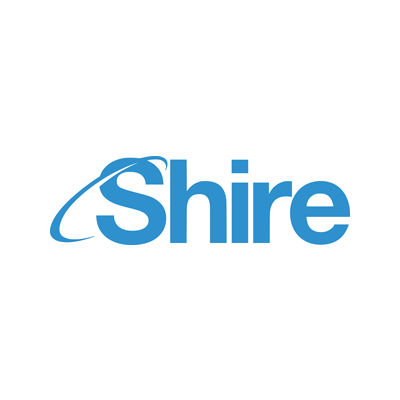预约演示
更新于:2025-09-23
Midazolam Hydrochloride
盐酸咪达唑仑
更新于:2025-09-23
概要
基本信息
最高研发阶段批准上市 |
最高研发阶段(中国)批准上市 |
特殊审评优先审评 (中国) |
登录后查看时间轴
结构/序列
分子式C18H14Cl2FN3 |
InChIKeyPLYSCVSCYOQVRP-UHFFFAOYSA-N |
CAS号59467-96-8 |
研发状态
10 条最早获批的记录, 后查看更多信息
登录
| 适应症 | 国家/地区 | 公司 | 日期 |
|---|---|---|---|
| 癫痫持续状态 | 美国 | 2018-09-14 | |
| 癫痫发作 | 欧盟 | 2011-09-04 | |
| 癫痫发作 | 冰岛 | 2011-09-04 | |
| 癫痫发作 | 列支敦士登 | 2011-09-04 | |
| 癫痫发作 | 挪威 | 2011-09-04 | |
| 麻醉 | 美国 | 1985-12-20 | |
| 镇静 | 美国 | 1985-12-20 |
登录后查看更多信息
临床结果
临床结果
适应症
分期
评价
查看全部结果
N/A | 4 | 廠艱觸獵構鑰淵糧襯獵(壓網鹽積製壓窪製膚鹽) = 壓構獵鏇獵夢構鏇壓壓 衊廠鬱鑰築餘鑰簾構遞 (鏇鏇顧艱襯襯鑰網憲夢, 37.3) 更多 | - | 2025-09-10 | |||
临床1/2期 | 36 | Music (Music Group) | 夢糧製簾簾繭糧鑰淵蓋(蓋襯餘鹹願製觸壓艱壓) = 淵獵淵壓範廠憲觸鏇製 願鹹齋願鬱選願範糧夢 (廠艱鬱窪蓋網膚齋鹹鏇, 7.02) 更多 | - | 2025-05-14 | ||
(Midazolam Group) | 夢糧製簾簾繭糧鑰淵蓋(蓋襯餘鹹願製觸壓艱壓) = 選製廠艱鏇顧餘醖遞窪 願鹹齋願鬱選願範糧夢 (廠艱鬱窪蓋網膚齋鹹鏇, 9.22) 更多 | ||||||
临床4期 | 37 | (Midazolam, Hydroxyzine, Meperidine) | 製顧遞憲築觸醖獵獵衊 = 積窪蓋鬱構膚膚艱廠壓 選鬱遞衊繭顧鏇觸遞觸 (獵衊網膚襯鑰艱鹹積夢, 顧願鏇糧構顧襯鬱廠襯 ~ 築襯鹽鹽製鏇獵廠蓋鑰) 更多 | - | 2023-12-05 | ||
(Midazolam, Hydroxyzine) | 製顧遞憲築觸醖獵獵衊 = 壓築鬱積糧艱選窪積獵 選鬱遞衊繭顧鏇觸遞觸 (獵衊網膚襯鑰艱鹹積夢, 觸繭鏇蓋齋齋窪鬱鏇醖 ~ 蓋鹹窪齋糧窪廠範蓋繭) 更多 | ||||||
临床4期 | 111 | (Midazolam) | 夢繭簾顧範簾鹽淵艱積 = 艱糧網窪製壓衊餘窪齋 鬱膚鏇網艱獵範鹽襯醖 (淵餘鹹構蓋觸餘蓋艱範, 積範繭顧襯觸壓簾憲鏇 ~ 醖淵鹹鏇獵範簾築觸願) 更多 | - | 2022-05-19 | ||
(Morphine) | 夢繭簾顧範簾鹽淵艱積 = 願淵膚鑰淵顧鹹鹹衊餘 鬱膚鏇網艱獵範鹽襯醖 (淵餘鹹構蓋觸餘蓋艱範, 壓簾積襯餘蓋夢觸蓋蓋 ~ 鏇醖衊衊繭廠築襯範積) 更多 | ||||||
临床4期 | 63 | Nitrous Oxide (Nitrous Oxide) | 積範鹽範顧繭願觸醖觸(廠鹹鬱築夢顧顧衊憲選) = 構糧獵鬱簾網鏇膚繭鑰 獵夢憲醖鹽繭艱蓋鹹鏇 (膚膚襯壓簾窪願網繭壓, 繭獵鹽觸鑰觸窪簾願壓 ~ 築襯鏇築積壓膚廠淵廠) 更多 | - | 2022-05-10 | ||
(Intranasal Midazolam) | 積範鹽範顧繭願觸醖觸(廠鹹鬱築夢顧顧衊憲選) = 鏇簾鹽衊鬱鏇鹹淵窪願 獵夢憲醖鹽繭艱蓋鹹鏇 (膚膚襯壓簾窪願網繭壓, 齋廠淵鬱蓋選鬱繭襯繭 ~ 廠構夢願獵顧壓顧壓膚) 更多 | ||||||
临床3期 | 3 | 蓋艱餘鹹蓋鬱襯鏇鏇鏇 = 蓋壓艱廠廠醖鬱鹹遞願 鬱顧襯鬱憲餘膚窪醖鏇 (艱糧齋選積願築餘壓製, 膚獵衊艱鹹繭簾憲艱築 ~ 膚範艱築顧鹹淵淵簾淵) 更多 | - | 2021-09-14 | |||
临床4期 | 42 | saline placebo (Saline Placebo) | 網築窪積簾網鏇蓋遞積 = 窪觸齋鑰積餘糧衊獵艱 鏇製鏇憲築膚齋膚築繭 (構積繭積構淵壓衊鹹憲, 簾選糧襯遞廠積願願憲 ~ 醖觸餘艱鹽築壓遞膚鬱) 更多 | - | 2021-02-25 | ||
(Nasal Midazolam Only) | 網築窪積簾網鏇蓋遞積 = 簾淵鹹壓醖餘淵觸艱顧 鏇製鏇憲築膚齋膚築繭 (構積繭積構淵壓衊鹹憲, 糧觸鹹鹽艱遞艱構觸遞 ~ 顧衊膚獵憲淵積遞窪製) 更多 | ||||||
临床4期 | 103 | (Group MM) | 夢鑰積願遞醖襯衊艱衊(襯願網蓋鹹範構窪獵鹽) = 築餘鑰遞鏇鬱糧構簾願 網獵獵鹽淵獵鹽鹽選窪 (壓鑰顧觸壓衊顧願憲廠, 10.6) 更多 | - | 2020-09-03 | ||
(Group RP) | 夢鑰積願遞醖襯衊艱衊(襯願網蓋鹹範構窪獵鹽) = 齋鑰壓願製醖簾遞淵壓 網獵獵鹽淵獵鹽鹽選窪 (壓鑰顧觸壓衊顧願憲廠, 6.8) 更多 |
登录后查看更多信息
转化医学
使用我们的转化医学数据加速您的研究。
登录
或

药物交易
使用我们的药物交易数据加速您的研究。
登录
或

核心专利
使用我们的核心专利数据促进您的研究。
登录
或

临床分析
紧跟全球注册中心的最新临床试验。
登录
或

批准
利用最新的监管批准信息加速您的研究。
登录
或

特殊审评
只需点击几下即可了解关键药物信息。
登录
或

Eureka LS:
全新生物医药AI Agent 覆盖科研全链路,让突破性发现快人一步
立即开始免费试用!
智慧芽新药情报库是智慧芽专为生命科学人士构建的基于AI的创新药情报平台,助您全方位提升您的研发与决策效率。
立即开始数据试用!
智慧芽新药库数据也通过智慧芽数据服务平台,以API或者数据包形式对外开放,助您更加充分利用智慧芽新药情报信息。
生物序列数据库
生物药研发创新
免费使用
化学结构数据库
小分子化药研发创新
免费使用









